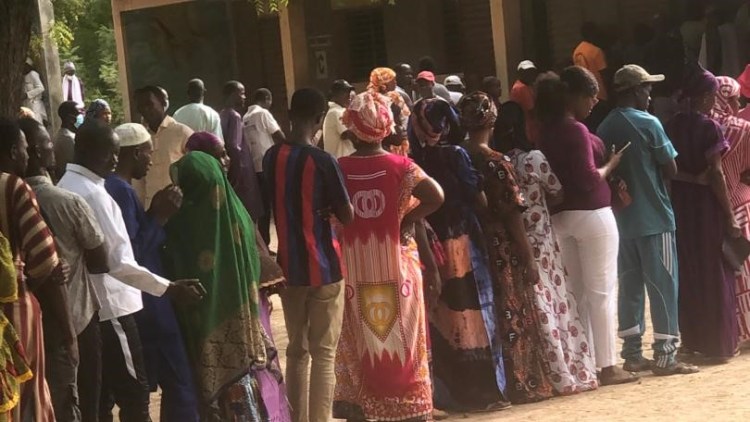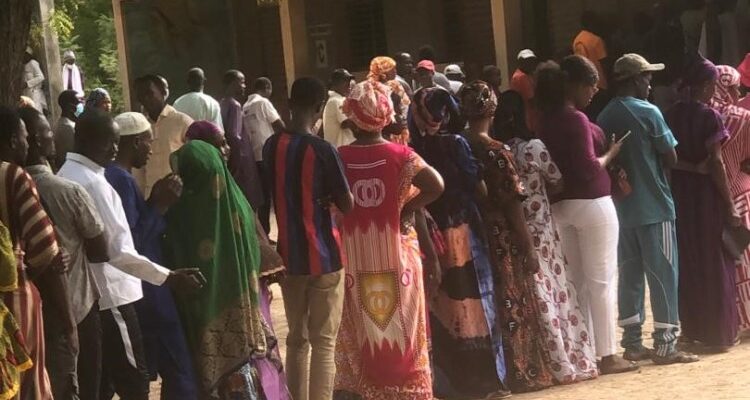
In Kolda District, 670kms away from Dakar, Senegal’s capital, voting began in earnest as early as 8.10am as large number of people turned out to cast their votes for their candidates.
A large proportion of the voters are women who tend to arrive in groups, some backing their children and discussing animatedly amongst themselves.
The queues are orderly and the people wait patiently to cast their votes in a process that has been so simplified that hardly anyone required the assistance of the electoral officers or party agents around, apart from the occasional sight-challenged men or women who need help locating the tent.
The voting system combines open and secret balloting.The process is speedy and only requires voters to go inside the classroom that houses the ballot box and once their name has been confirmed in the voter register, they were then expected to pick five of the 19 cards on display that contain the pictures, names and party logos of candidates, and an envelope, as party officials and agents watch.
After that, the voter, now alone, goes inside a tent and put just the card of his candidate inside the envelope while discarding the rest. He or she then exits the tent and puts the envelop in a transparent voting box.
The thumb is then inked to indicate they have voted. There are 19 people on the ballots, from economists to geographers, auditors, and the odd journalist and a female, all vying to become president of this peaceful democratic country.
At the six polling units in this centre, C.E. M1 and the long line of voters, mostly women, formed six long queues as even more people continue to arrive in batches to join them.
The average number of voters in each of the polling units is over 500, and it appears that most of these will actually come out to perform their civic duties.
Although there are a number of policemen at the centre they have mainly waited at the entrance to the school and their presence might yet be superfluous as there has been no incident of rowdiness or ballot snatching.
It seems clear that the people have been doing this exercise for a long time and have gotten the hang of it. Officials were early, some even slept at the venue, and everyone appeared to understand their roles.
Although Senegal is largely a peaceful place, Kolda, which is both the name of the city and the region, is one of the regions that was particularly of concern because of the previous activities of rebel groups here. A combination of carrot and stick approach by the administration of President Macky Sall has since dampened the fervour of the rebels.
Located in the south of Senegal, the region shares borders with Guinea, Guinea-Bissau, The Gambia, and the other fellow regions of Sedhiou, and Tambacounda.
Its population of 916,513 is made up of mostly youths who have taken active interest in the political process.

Comments